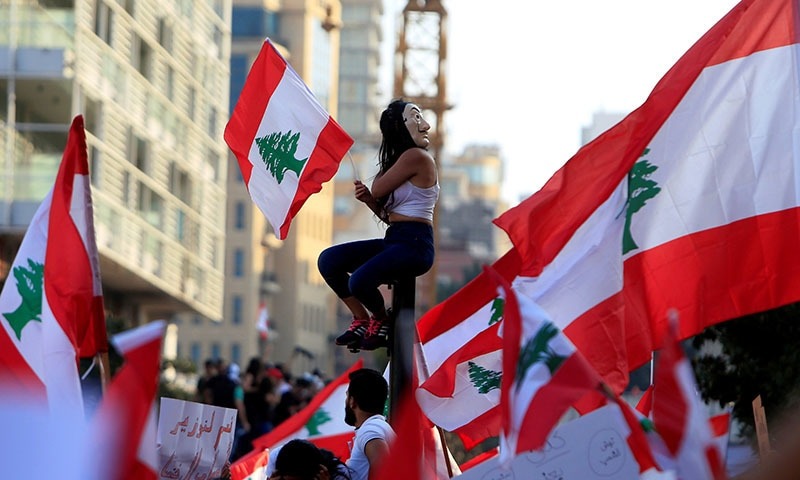Lebanese Prime Minister Saad al-Hariri agreed on Sunday a package of reforms with government partners to ease an economic crisis that has sparked protests aimed at ousting the ruling elite they see as riddled with corruption and cronyism.
Officials said the agreement was reached as hundreds of thousands of protesters flooded the streets in the biggest show of dissent against the establishment in decades. A sea of people, some waving Lebanese flags, crammed roads for the fourth day, calling for revolution in protests that resembled the 2011 Arab revolts that toppled four presidents.
Hariri, who is leading a coalition government mired by sectarian and political rivalries, gave his feuding government partners a 72-hour deadline on Friday to agree reforms that could ward off crisis, hinting he may otherwise resign.
Hariri accused his rivals of obstructing his reform measures that could unlock $11 billion in Western donor pledges and help avert economic collapse.
The reform decisions require a 50pc reduction in salaries of current and former presidents, ministers and MPs plus cuts in benefits to state institutions and officials. It also obliges the central bank and private banks to contribute $3.3 billion to achieve a “near zero deficit” for the 2020 budget.
It also includes a plan to privatise its telecommunications sector and an overhaul to its costly and crumbling electricity sector, which poses one of the biggest strains on the country’s depleted finances.
The anti-government protests, fuelled by crippling economic conditions and anger at perceived government corruption, have fanned out across the country since Thursday.
Ending rampant corruption is a central demand of the protesters, who say the country’s leaders have used their positions to enrich themselves for decades through favourable deals and kickbacks.
Many blamed the ruling elite for driving their children out of Lebanon because they failed to build a country that could provide jobs.
